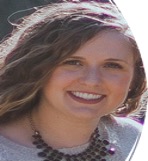
By: Patti L. Solomon-Rice, PhD, CCC-SLP TSHF Research Awards Committee Chair
The Texas Speech-Language-Hearing Foundation (TSHF) was pleased to recognize many deserving research and travel award recipients at the 2024 Awards Breakfast during the Texas Speech-Language-Hearing Association (TSHA) 2024 Convention in Fort Worth. Although the amount of each award is not large, the award can be sufficient to explore the feasibility of a novel idea, support preliminary research needed to apply for a larger nationally funded research project, extend the findings of a currently funded research project, or provide funding for travel to present research at an international workshop, conference, or convention. Our Research Awards Program supports the mission of TSHF to improve the lives of people with communication disorders by promoting research relevant to communication disorders and supporting Texas-based researchers across a variety of settings.
This year, we awarded grants for four research projects and two international travel presentations, The research projects and international travel presentations represented a wide range of topics and totaled $10,300. Our 2024 research awardees are as follows.

The Tina E. Bangs Research Endowment was presented to Dr. Donguk Lee, assistant professor at the University of North Texas, for the project Noise Tolerance and Preferred Listening Level Under Different Noise Conditions.

The Elisabeth Wiig Doctoral Student Research Award was presented to two doctoral students. The first recipient was Rajvi Agravat, from The University of Texas at Austin, for the project Investigating Selective Auditory Attention through a Game-Based Approach and Neural Recording.

The second recipient was Prabuddah Bhatarai, from The University of Texas at Dallas, for the project Emotional Responses to Speech and Environmental Sounds by Cochlear Implant Users.

The Lear Ashmore Research Endowment was presented to Gary Robinaugh, a doctoral student from The University of Texas at Austin, for the project Multimodal Communication in Progressive Aphasia: An Experience Sampling Method Pilot Study.

The Presidents’ Research Endowment was awarded to Dr. Marianna Rubino, post-doctoral fellow at the University of Houston, in support of the project Behavioral Activation System Sensitivity in Individuals with Phonotraumatic Voice Disorders.

The Sandy Friel-Patti International Travel Award was presented to two doctoral students this year. The first travel award went to Kathleen Denicola-Prechtl, from The University of Texas at Dallas, for a presentation at the International Congress of Infant Studies Conference in Glasgow, Scotland, entitled Identifying Barriers to Hispanic Children’s Access to Early Language intervention. The second travel award was presented to Garret Kurteff, from The University of Texas at Austin, for a presentation at the Cognitive Neuroscience Society in Toronto, Canada, entitled Intracranial EEG Processing of Auditory Feedback in the Perisylvian Cortex.
Congratulations again to all our 2024 TSHF Research and Travel Award recipients!
Also, special thanks go to our Research Awards Committee members, Dr. Lynn Maher, from the University of Houston, who is our immediate past chair of the Research Awards Committee, and Dr. Boji Pak Wing Lam, from the University of North Texas. Most importantly, as always, a huge thank you to all who continue to support the work of TSHF, for it is through your generous donations that these research and travel awards are possible.
 We continue to hear from our research recipients that our support does make an impact. For example, our 2023 Sandy Friel-Patti International Travel Award was presented to Dr. Stephanie Grasso, assistant professor from The University of Texas at Austin, for their presentation at the International Society of Frontotemporal Dementia in Lille, France, entitled, Examining the effects of restitutive speech-language interventions in culturally and linguistically diverse individuals with primary progressive aphasia. Dr. Grasso and fellow researchers observed that individuals demonstrated significant improvements in either (1) naming or (2) production of trained scripts and that these effects were maintained up to a year post-treatment. They also observed evidence of cross-linguistic transfer. The researchers are currently writing a manuscript and collecting additional data. Dr. Grasso thanked TSHF, stating, “I am so appreciative of the award and the opportunities it provided to me!”
We continue to hear from our research recipients that our support does make an impact. For example, our 2023 Sandy Friel-Patti International Travel Award was presented to Dr. Stephanie Grasso, assistant professor from The University of Texas at Austin, for their presentation at the International Society of Frontotemporal Dementia in Lille, France, entitled, Examining the effects of restitutive speech-language interventions in culturally and linguistically diverse individuals with primary progressive aphasia. Dr. Grasso and fellow researchers observed that individuals demonstrated significant improvements in either (1) naming or (2) production of trained scripts and that these effects were maintained up to a year post-treatment. They also observed evidence of cross-linguistic transfer. The researchers are currently writing a manuscript and collecting additional data. Dr. Grasso thanked TSHF, stating, “I am so appreciative of the award and the opportunities it provided to me!”
Our 2023 Presidents’ Research Endowment was awarded to Garret Kurteff, a doctoral student from The University of Texas at Austin, in support of their project, Intracranial EEG Processing of Auditory Feedback in the Perisylvian Cortex. Garret is running delayed auditory feedback (DAF) tasks with participants who have implanted electrodes for controlling epilepsy to investigate the spatial precision of the brain regions involved in speech dysfluencies. TSHF research award funds are being used to hire an undergraduate research assistant to help analyze the data. Here is a link to the preprint of the article that is under peer review: https://www.biorxiv.org/content/10.1101/2024.05.14.593257v1. Garret also thanked TSHF, stating, “Always grateful for TSHF’s support.”
Two doctoral students in 2023 received the Elisabeth Wiig Doctoral Student Research Award. Megan Young, a doctoral student from The University of Texas at Austin, received the award for their project Stuttering in the workplace: Employers’ attitudes, employability ratings, and hiring decisions. The results of one study in the project suggested that many employers hold ableist perceptions of adults who stutter. The results of a second study in the project found that high communication competence behaviors and self-disclosure may positively influence employers’ perceptions of the personality traits and/or employability of a candidate who stutters; however, these perceptions were not observed to significantly influence the likelihood of being hired for a communication-centered role. Collectively, the results demonstrated the need for greater advocacy and inclusion efforts in the workplace to improve employment equity for adults who stutter. Megan used the TSHF research award funds to recruit U.S. employers using the online behavioral research platform Prolific. Findings from the research were presented at the World Congress on Stuttering and Cluttering held in Austin in May 2024.
Another doctoral student from The University of Austin at Texas also received the 2023 Elisabeth Wiig Doctoral Student Research Award. Erica McVey received the award for their project Cortical speech in noise processing in L2 bilingual sign language interpreters. The preliminary results of the study suggest differences between the participants who are sign language interpreters as compared to the non-sign language interpreter group. The sign language interpreters appear to show more similar tracking of speech both with and without background noise as compared to the non-sign language group across different listening conditions. Erica used the TSHF research award funds to pay for EEG materials and supplies as well as to reimburse participants for their time. Ms. McVey stated, “Once again, I am grateful for TSHFoundation support.”
The TSHF Research Committee will be making two program adjustments based on the recognition that the timing of the TSHF awards program doesn’t always coincide with typical research cycles. Beyond the challenges of completing human subject projects during the COVID-19 pandemic, the timing of the awards may make it difficult to complete research projects within one year of award receipt. As a result, beginning in 2025, we will be extending the time to completion of research projects to two years from receipt of the award. While this is a one-time award (i.e., there is no year two funding option), investigators will have two years to expend their funds and will not need to submit a no-cost extension request after one year to complete their project.
Also, beginning in 2025, we will begin accepting requests for the Sandy-Friel Patti International Travel Award twice a year, which may fit better with the submission to present at international meetings. More details on the mid-year submission for this award will be forthcoming on the TSHF Research Grant website page.
Once again, many thanks to all of you who, through your generous donations, make support of these and many more innovative and important research projects possible. Your support is well used and very much needed. Finally, thank you to our research and travel award recipients for their continued effort and commitment toward improving the lives of those with communication challenges.